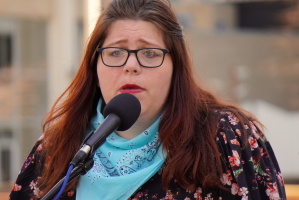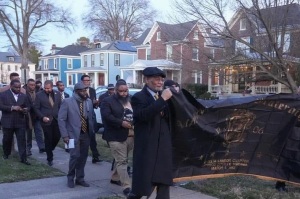Justice Clarence Thomas once left the church ‘disillusioned,’ but found faith again in ‘darkest’ hour

Supreme Court Justice Clarence Thomas, who spent four years training in seminary, said he once got so “disillusioned” with Christianity he abandoned it in a huff. But he found hope in his faith again during one of the “darkest periods” of his life.
"Although I was raised Catholic and spent four years in the seminary ... I became greatly disillusioned from the church, and made the mistake of angrily storming away in impetuousness of youth,” Thomas revealed during a dedication ceremony for Hillsdale College’s newly-constructed Christ Chapel on Oct. 3.
During the ceremony, which was broadcast on Facebook Live from the nonsectarian Christian institution, Thomas, who was appointed to the Supreme Court by President George H.W. Bush, told a crowd of about 800 that during his young adulthood and while he was at law school he spent very little time with God.
After he became a part of President Ronald Reagan’s administration, however, all that changed.
“I was in the midst of one of the darkest periods of my life. I was running a federal agency under significant public scrutiny and criticism … life seemed hopeless and like I had nowhere to turn,” Thomas said. “But in the midst of this time, God drew me back to the church.”
He explained that during his controversial confirmation hearing in 1991, when Anita Hill accused him of sexual harassment during Senate testimony, it was his faith that sustained him.
“God used this renewed faith to sustain me and my wife through my confirmation hearings, and we continue to rely daily on the grace He gives us,” Thomas said. “But there is nothing unique about this in our lives. For many people, chapels and churches have served as beacons of hope, physical reminders of the need for God and His grace.”
He praised the presence of the chapel on Hillsdale’s campus and said it is important that college campuses have a place where students, if they choose, can commune with God and reflect.
“The presence of a chapel on a college campus is particularly important. In fact, in this age of popular iconoclasm, building a chapel on a college campus is all but forbidden,” he said. “The college years require young people to make decisions that will affect the rest of their lives. They are exposed to new ideas, new relationships, new distractions and new temptations.
"They need a place where they can go to be relieved of their troubles and what they are bearing as so much comes at them so fast. By building this chapel, Hillsdale College has provided that space where students can come to discern God’s calling, to pray through difficult times, and to praise God for His faithfulness,” he added.
The private college, which has more than 1,400 students, does not accept federal funding and relies heavily on donors, The Detroit News reported.
And while most of the students who attend the college are Christians, neither students nor faculty are required to sign a statement of faith to attend.
“By constructing this chapel, the college upholds the importance of its Christian roots, even as it respects the rights of each person to worship God according to the dictates of his own conscience,” Thomas said.





























